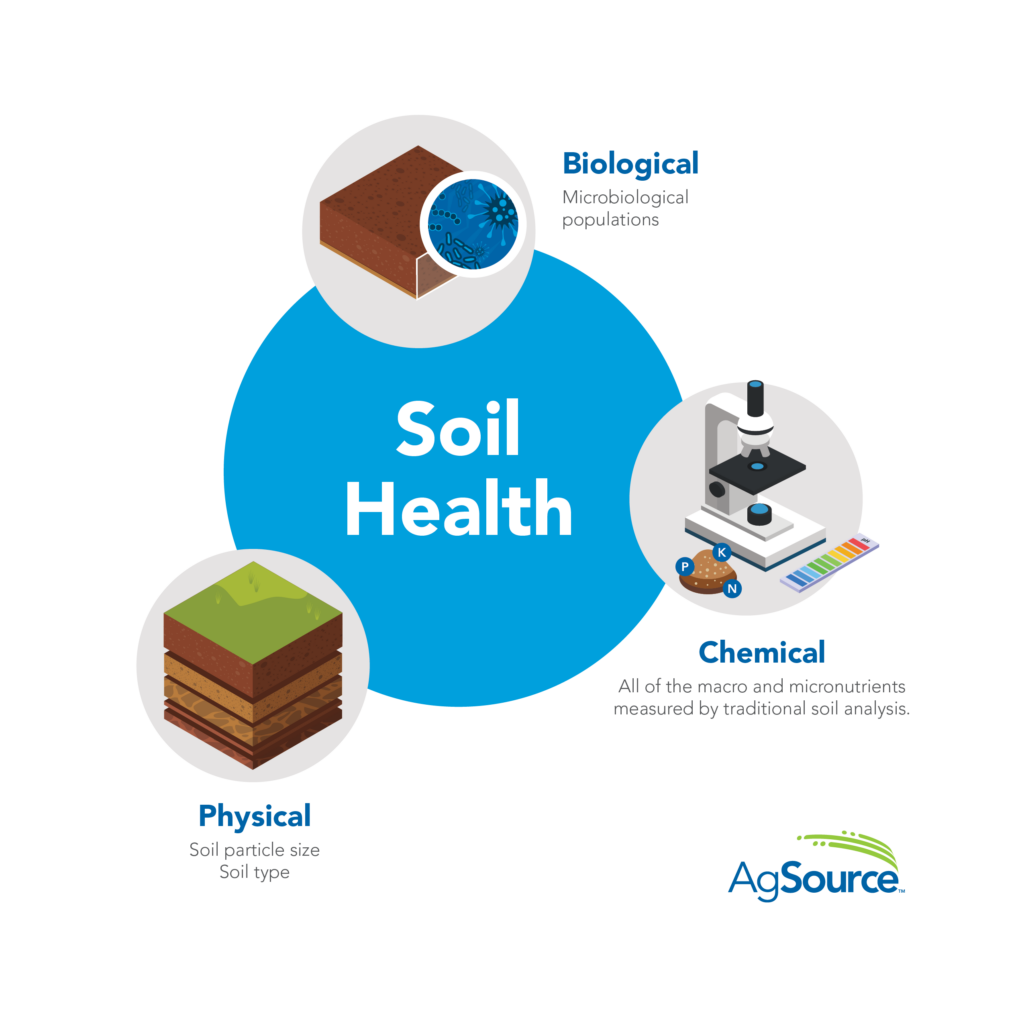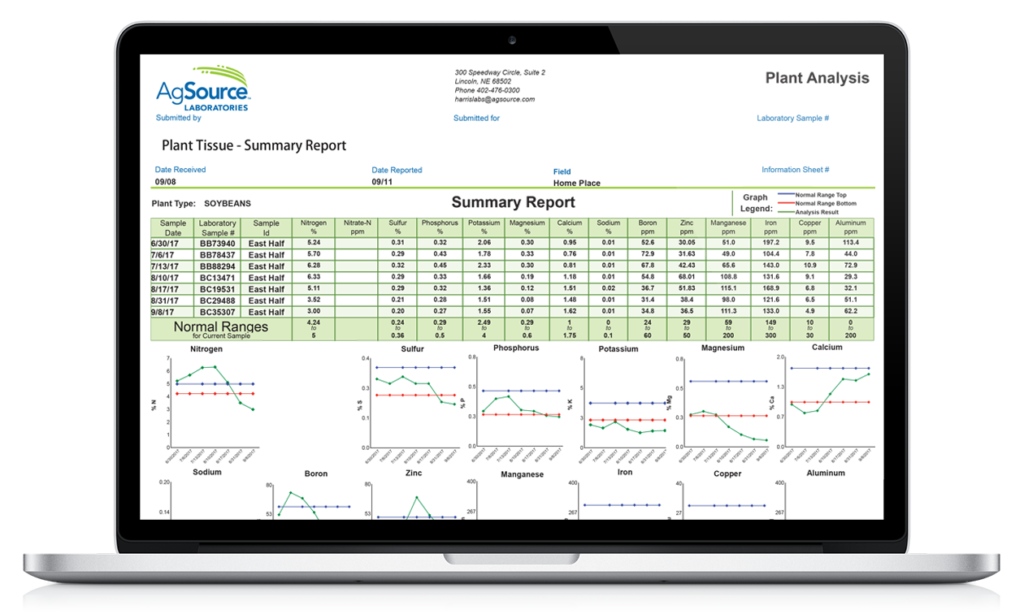SOIL HEALTH TESTING
How healthy is your soil? Our soil health tests combine physical, biological and chemical assessments for a holistic approach to monitoring soil.
Combining the chemical and physical results from a traditional soil test with a biological assessment of microbial activity, AgSource Laboratories soil health assessment delivers a measurement of a soil’s health and quality.
When you understand your soil’s overall health, you can work to unlock the benefits associated with healthier soil.
Hear from our team on how a soil health assessment can ensure quality yields and pinpoint potential issues.

Increase Organic Matter
Increased microbial activity will help improve structure and nutrient cycling
Improve Soil Structure
Retain plant available water for longer periods of time
Build Sustainable Soil
Mitigate variability in water and nutrient supplies for productive crops and ensure a strong foundation for the next generation
Certified
AgSource Laboratories follows strict and rigorous testing standards
All soil health samples are analyzed for the following:
Soil pH, Buffer pH, Excess Carbonate, Soluble Salt, Organic Matter, Phosphorus, Potassium, Magnesium, Calcium, Sodium, Nitrate, Sulfur, Zinc, Manganese, Copper, Iron, Boron, Calculated CEC and % of Base Saturation
Packages below include the above analyses:
- Basic Package – includes Soil Health Score, CO2 Respiration and Organic C:N Ratio
- Routine Package – includes Basic Package & Water Soluble Analysis: Carbon, Total Nitrogen, Organic Nitrogen, Nitrate-N, Ammoniacal-N
- Complete Package – includes Routine Package & Haney H3A Extraction: Orthophosphate-P, Phosphorus, Potassium, Calcium, Iron and Aluminum
Additional Analyses:
- CO2 Respiration Only
- Complete Bulk Density
- Carbon Testing – this test measures the amount of carbon sequestered in the soil. AgSource uses the gold standard method – combustion carbon analysis – to support farmers and intermediaries in the ag carbon market. To learn more about this test, get in touch with a AgSource Laboratories’ representative.
- Total Carbon – contains organic and inorganic
- Total Organic Carbon – preferred method for carbon credits
- Total Inorganic Carbon – includes forms like carbonates
- Total C:N Ratio
- Total Nitrogen
- Total Organic C:N Ratio
Cover Crop Biomass Test – this test provides a measurement of N and other key nutrients taken up by a cover crop, and indicates how readily those nutrients will become available in the soil for the next crop. To estimate this rate of decomposition, a measure of the C:N ratio is used.
Cover crops are an important practice in maintaining healthy and productive soils. AgSource Laboratories’ cover crop biomass test uses a plant tissue sample for analysis. Learn more, here.
*Pricing subject to change – call your local AgSource Laboratories location for special volume pricing
A representative sample is essential for accurate analysis. Consistency in sampling ensures reliable test results, helping you build an effective soil fertility program.
Follow these basic sampling reminders for best results:
- Most surface samples are taken from a depth of 0 – 6” up to 8” as this is where management of fertilizers and soil amendments occur.
- A composite sample allows for a representative analysis.
- Fill soil bag completely. The laboratory needs at least 8 – 16 oz. of material to perform all analyses.
- Consistency is key – the time of year you test (early fall vs. spring) can affect analytical results. Whatever time of year you decide to sample, it is best to stick with it annually.
- Soil is biologically active! It is important to collect a sample and ship no later than the next day. If storage is required three options are available: dry the soil with low heat (no greater than 120° F)
Soil Health Testing Companion Analysis
Plant Tissue Testing
Looking to fine-tune your fertilizer program throughout the growing season? We recommend using our summary plant tissue report which allows you to track and view past sample results of your crop



